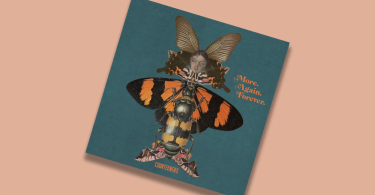Anti-feminist celebrities
Beyoncé fights back
In December 2013, Beyoncé’s self-titled album brought forward her view on feminism, with her actively tackling the stigma that had been created by her female peers. This album criticises the beauty standards set for women, and in her track ‘Flawless’ Beyoncé samples Chimamanda Ngozi Adichie’s speech on feminism, which clearly defines what it is to be feminist.
It was Beyoncé’s performance at the MTV VMAs, with the word ‘feminist’ flashing behind her and Chimamanda’s definition of feminism also being displayed, that set the scale of Beyoncé’s power to bring change. Because Beyoncé is a huge role model for young girls everywhere, her VMA performance in front of millions is slowly but surely helping to remove the stigma attached to feminism.
Her image is both that of a wife who loves her husband and family and of an empowered sexualised woman, and because of this she is successfully removing the idea that ‘man-hating spinster’ is synonymous with ‘feminist.’
Criticism of the imperfect feminist
However, despite Beyoncé’s best efforts she has come under strong criticism, and not just from social media. Famous feminist bell hooks criticised Beyoncé earlier this year, calling her a ‘terrorist’ and stating that Beyoncé is doing nothing but creating an impossible standard of beauty for young girls.
On top of this huge criticism from such a great name in feminism, the reaction from online feminists was also not hugely positive. Many accused Beyoncé of ‘hypocrisy’ in her portrayal of herself as a feminist; by dancing around scantily-clad and singing ‘bow down bitches,’ she has been seen to do little to endorse the idea of feminism.
But should all this criticism be focused on Beyoncé? She may not be the perfect image of a feminist – and she is still problematic – but her efforts are more positive than those of Katy Perry and Lady Gaga who refuse to accept feminism at all, so it seems unfair that these women did not receive the same scale of public backlash.
Beyoncé’s goal of simply defining feminism for young girls should be enough; she is using her commercial image within music to create change. She may not be the ideal image of a feminist, but she is the first marketable feminist that there is for young girls, and this is something that should be praised, not just criticised for its flaws.
Unlike the other artists mentioned, Beyoncé is doing something for feminism, if only to give it validity in the media and create discussion around it. Regardless of the implications, this can’t be viewed as anything less than progress for feminism.
What do you think? Have your say in the comments section below.








